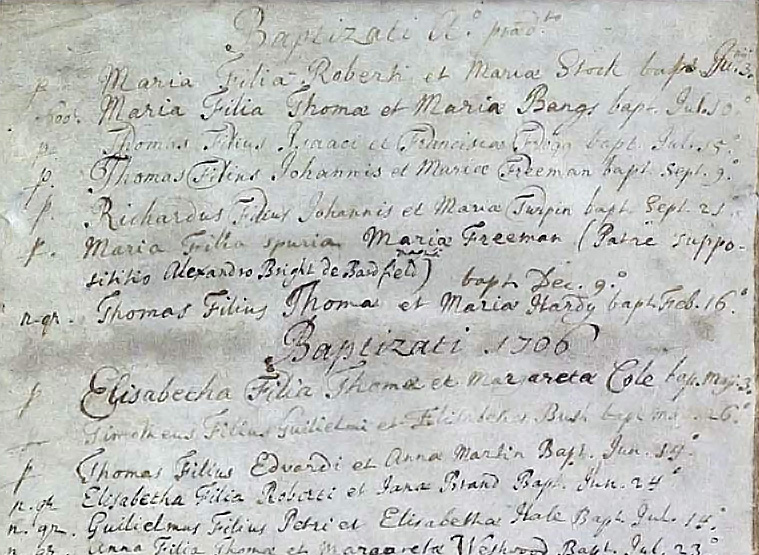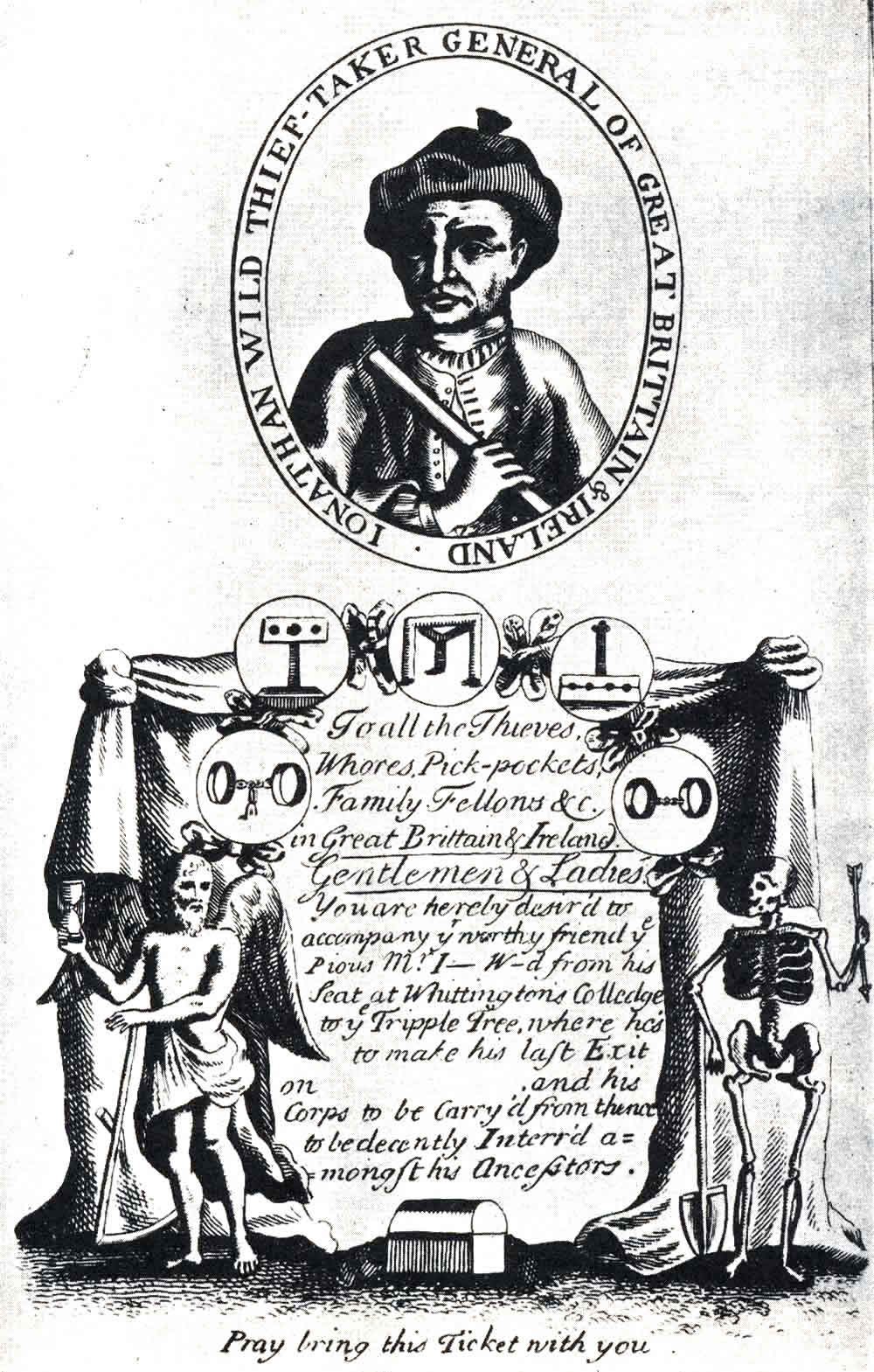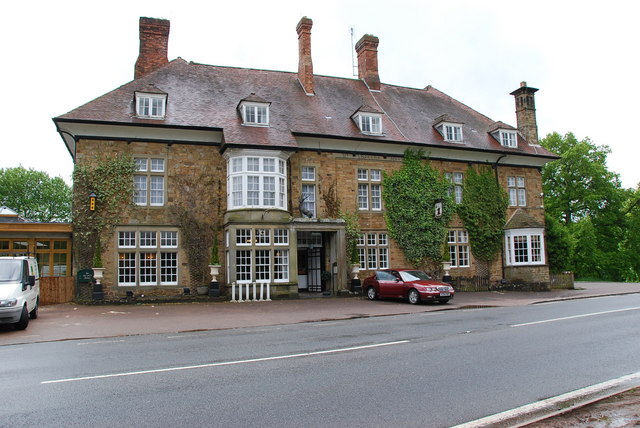|
Dick Turpin
Richard Turpin (bapt. 21 September 1705 – 7 April 1739) was an English highwayman whose exploits were romanticised following his execution in York for horse theft. Turpin may have followed his father's trade as a butcher early in his life but, by the early 1730s, he had joined a gang of deer thieves and, later, became a poaching, poacher, burglary, burglar, horse thief, and killer. He is also known for a fictional overnight ride from London to York on his horse Black Bess, a story that was made famous by the Victorian era, Victorian novelist William Harrison Ainsworth almost 100 years after Turpin's death. Turpin's involvement in the crime with which he is most closely associated—highway robbery—followed the arrest of the other members of his gang in 1735. He then disappeared from public view towards the end of that year, only to resurface in 1737 with two new accomplices, one of whom Turpin may have accidentally shot and killed. Turpin fled from ... [...More Info...] [...Related Items...] OR: [Wikipedia] [Google] [Baidu] |
William Harrison Ainsworth
William Harrison Ainsworth (4 February 18053 January 1882) was an English historical novelist born at King Street in Manchester. He trained as a lawyer, but the legal profession held no attraction for him. While completing his legal studies in London he met the publisher John Ebers, at that time manager of the King's Theatre, Haymarket. Ebers introduced Ainsworth to literary and dramatic circles, and to his daughter, who became Ainsworth's wife. Ainsworth briefly tried the publishing business, but soon gave it up and devoted himself to journalism and literature. His first success as a writer came with '' Rookwood'' in 1834, which features Dick Turpin as its leading character. A stream of 39 novels followed, the last of which appeared in 1881. Ainsworth died in Reigate on 3 January 1882, and was buried in Kensal Green Cemetery. Biography Early life Ainsworth was born on 4 February 1805 in the family house at 21 King Street, Manchester, to Thomas Ainsworth, a promine ... [...More Info...] [...Related Items...] OR: [Wikipedia] [Google] [Baidu] |
Baptised
Baptism (from ) is a Christians, Christian sacrament of initiation almost invariably with the use of water. It may be performed by aspersion, sprinkling or affusion, pouring water on the head, or by immersion baptism, immersing in water either partially or completely, traditionally three times, once for each person of the Trinity. The synoptic gospels recount that John the Baptist baptism of Jesus, baptized Jesus., , Baptism is considered a sacrament in most churches, and as an ordinance (Christian), ordinance in others. Baptism according to the Trinitarian formula, which is done in most mainstream Christian denominations, is seen as being a basis for Christian ecumenism, the concept of unity amongst Christians. Baptism is also called christening, although some reserve the word "christening" for the Infant baptism, baptism of infants. In certain Christian denominations, such as the Catholic Churches, Eastern Orthodox Churches, Oriental Orthodox Churches, Assyrian Church of t ... [...More Info...] [...Related Items...] OR: [Wikipedia] [Google] [Baidu] |
Clay Hill, London
Clay Hill is an area of Enfield, London, Enfield, London, England. It is located to the north of Enfield Town and is mainly a residential area which almost borders Crews Hill to the north and forms part of London's Green Belt. Prior to 1965 it was in the historic counties of England, historic county of Middlesex. Places of interest include Clay Hill House, Whitewebbs Park, Hillyfields Park and Forty Hall. The North Enfield Cricket Club ground is located within the Clay Hill area, at the top of Hilly Fields Park. Etymology Clay Hill is recorded as ''Clayhyll'' (1524), ''Clayhillgate'' (1636); apparently self-explanatory, 'hill with clay soil', with -''gate'' which refers to gate of Enfield Chase. However, the local name Claysmore, earlier ''Clayes More Grove'' (1610), is associated with the family of William ''atte Cleye'' (that is 'at the clayey place') (1274), ''John Clay'' (1420). Clay Hill may derive from a surname rather than the word ''clay''. History Whitewebbs has link ... [...More Info...] [...Related Items...] OR: [Wikipedia] [Google] [Baidu] |
Fence (criminal)
A fence, also known as a receiver, mover, or moving man, is an individual who mens rea, knowingly buys stolen goods in order to later resell them for profit. The fence acts as a wikt:middleman, middleman between thieves and the eventual buyers of stolen goods who may not be aware that the goods are stolen. As a verb (e.g. "''to fence'' stolen goods"), the word describes the behaviour of the thief in the transaction with the fence. As is the case with the word ''fence'' and its derivatives when used in its other common meanings (i.e. as a type of barrier or enclosure, and also fencing, as a sport), the word in this context is derived from the word ''wikt:defence, defence.'' Among criminals, the ''fence'' originated in Thieves' cant, thieves' slang tracing from the notion of such transactions providing a "defence" against being caught. Thieves who patronise fences are willing to accept a low profit margin in order to reduce their risks by instantly "washing their hands" of illici ... [...More Info...] [...Related Items...] OR: [Wikipedia] [Google] [Baidu] |
Secretary Of State For The Southern Department
The secretary of state for the Southern Department was a position in the Cabinet (government), cabinet of the government of the Kingdom of Great Britain up to 1782, when the Southern Department (Great Britain), Southern Department became the Home Office. History Before 1782, the responsibilities of the two British Secretary of State (United Kingdom), secretaries of state for the Northern Department, Northern and the Southern departments were divided not based on the principles of modern ministerial divisions, but geographically. The secretary of state for the Southern Department was responsible for Kingdom of Ireland, Ireland, the Channel Islands, Kingdom of France, France, History of Spain (1700–1808), Spain, Kingdom of Portugal, Portugal, the Old Swiss Confederacy, the states of Italian Peninsula, Italy, and the Ottoman Empire. He was also responsible for the British America, American colonies until 1768, when the charge was given to the Secretary of State for the Colonie ... [...More Info...] [...Related Items...] OR: [Wikipedia] [Google] [Baidu] |
Thomas Pelham-Holles, 1st Duke Of Newcastle
Thomas Pelham-Holles, 1st Duke of Newcastle upon Tyne, 1st Duke of Newcastle-under-Lyne (21 July 1693 – 17 November 1768) was an English Whigs (British political party), Whig statesman who served as Prime Minister of the United Kingdom, Prime Minister of Great Britain, and whose official life extended throughout the Whig supremacy of the 18th century. He is commonly known as the Duke of Newcastle. A protégé of Robert Walpole, he served under him for more than 20 years until 1742. He held power with his brother, prime minister Henry Pelham, until 1754. He had then served as a Secretary of State (United Kingdom), Secretary of State continuously for 30 years and dominated British foreign policy. After Henry's death, Newcastle was prime minister for six years in two separate periods. While his first premiership was not particularly notable, Newcastle precipitated the Seven Years' War, and his weak diplomacy cost him his premiership. After his second term, he served briefly in ... [...More Info...] [...Related Items...] OR: [Wikipedia] [Google] [Baidu] |
Verderer
Verderers are forestry officials in England who deal with common land in certain former royal hunting areas which are the property of the Crown. The office was developed in the Middle Ages to administer forest law on behalf of the King. Verderers investigated and recorded minor offences such as the taking of venison and the illegal cutting of woodland, and dealt with the day-to-day forest administration. In the modern era, verderers are still to be found in the New Forest, the Forest of Dean, and Epping Forest, where they serve to protect commoning practices, and conserve the traditional landscape and wildlife. Origins Verderers were originally part of the ancient judicial and administrative hierarchy of the vast areas of English forests and Royal Forests set aside by William the Conqueror for hunting. The title Verderer comes from the Norman word ‘vert’ meaning green and referring to woodland. These forests were divided into provinces each having a Chief Justice who travel ... [...More Info...] [...Related Items...] OR: [Wikipedia] [Google] [Baidu] |
Penal Transportation
Penal transportation (or simply transportation) was the relocation of convicted criminals, or other persons regarded as undesirable, to a distant place, often a colony, for a specified term; later, specifically established penal colonies became their destination. While the prisoners may have been released once the sentences were served, they generally did not have the resources to return home. Origin and implementation Banishment or forced exile from a polity or society has been used as a punishment since at least the 5th century BCE in Ancient Greece. The practice of penal transportation reached its height in the British Empire during the 18th and 19th centuries. Transportation removed the offender from society, mostly permanently, but was seen as more merciful than capital punishment. This method was used for criminals, debtors, military prisoners, and political prisoners. Penal transportation was also used as a method of colonization. For example, from the earliest day ... [...More Info...] [...Related Items...] OR: [Wikipedia] [Google] [Baidu] |
Black Act
The act 9 Geo. 1. c. 22, commonly known as the Black Act, or the Waltham Black Act, and sometimes called the Black Act 1722, the Black Act 1723, the Waltham Black Act 1722, the Criminal Law Act 1722, or the Criminal Law Act 1723, was an Act of Parliament (United Kingdom), act of the Parliament of Great Britain. It was passed in 1723 in response to a series of raids against landowners by two groups of poaching, poachers, known as the Blacks from their habit of blacking their faces when they undertook the raids. The act was expanded over the years and greatly strengthened the criminal law by specifying over 200 capital crimes, many with intensified punishment. Arson, for example, had its definition expanded to include the new crime of burning (or threatening to burn) haystacks. The legal rights of suspects and defendants under the act were strictly limited. For example, suspects who did not surrender within 40 days could be summarily judged guilty and sentenced to execution, so th ... [...More Info...] [...Related Items...] OR: [Wikipedia] [Google] [Baidu] |
Waltham Forest (legal Forest)
Waltham Forest was a royal forest that existed from around the time the Forest of Essex was disestablished in the 13th century. After that Royal forest#Forest law, Forest Law was focused on areas with higher concentrations of woodland than the sparsely wooded Forest of Essex ever had. Forests were legal institutions introduced by the Normans to denote an area where the King or another magnate had the right to keep and hunt deer and make Forest Law. Initially there was a very weak correlation between the extent of the legal forest and what might be termed the 'physical forest', the often wooded Common Land areas where the deer lived. In later centuries there was a much stronger correlation – with Forest areas decreasing in extent to more closely align with wooded area. Eventually the word forest became synonymous with woodland. The first known use of the name Waltham Forest is 1205 (in Latin#Medieval latin, Medieval Latin) as ''foresta nostra prope Waltham'', and the use of the n ... [...More Info...] [...Related Items...] OR: [Wikipedia] [Google] [Baidu] |
Buckhurst Hill
Buckhurst Hill is an affluent suburban town in Epping Forest District, Epping Forest, Essex, within the Greater London Urban Area and adjacent to the northern boundary of the London Borough of Redbridge. The area developed following the opening of a railway line in 1856, originally part of the Eastern Counties Railway and now on the Central line (London Underground), Central line of the London Underground. History The first known mention of Buckhurst Hill dates back to 1135, referenced as ''"La Bocherste"'', which later evolved into ''"Bucket Hill"'', originally meaning a hill covered with beech trees. At that time, it lay within the bounds of Epping Forest consisting of only a few scattered houses along the ancient route connecting Woodford, London, Woodford to Loughton. Before the building of the railways, Buckhurst Hill was on the stagecoach route between London and Cambridge, Norwich, Bury St Edmunds and Great Dunmow. Originally, Buckhurst Hill was a part of the parish of Chi ... [...More Info...] [...Related Items...] OR: [Wikipedia] [Google] [Baidu] |






